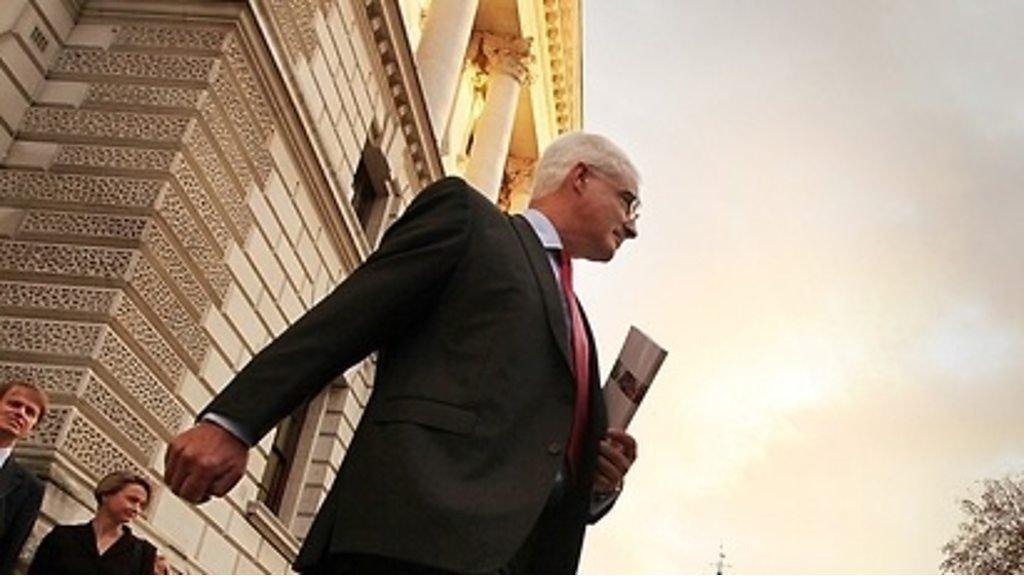'That was chilling': Ten years since the financial crash
- Published
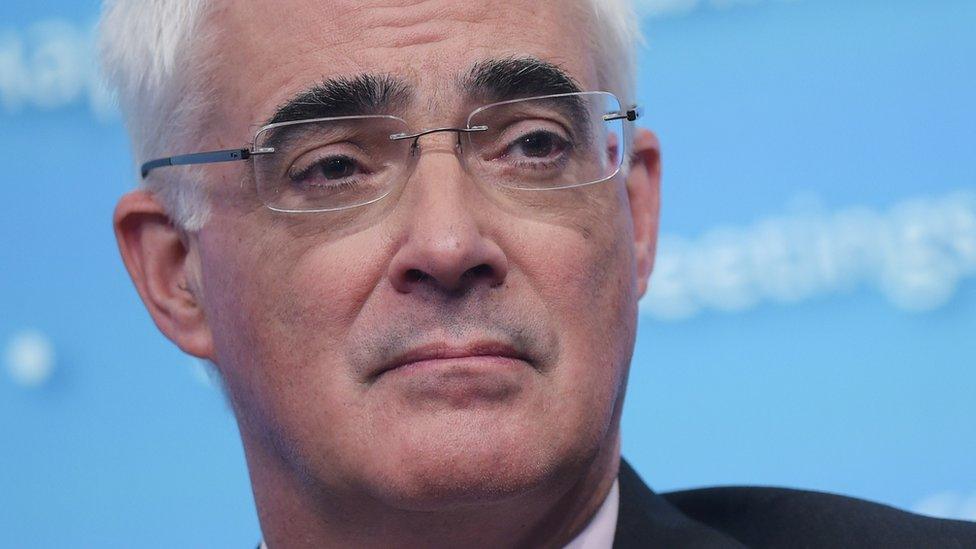
Lord Darling had been chancellor for less than a month when the financial crisis started
Ten years ago the then chancellor, Alistair Darling, was on holiday and had walked to the shops to buy bread rolls for breakfast.
He picked up a copy of the Financial Times. It stopped him in his tracks as he walked home.
The lead story was about a French bank, BNP Paribas, which had been forced to close two of its hedge funds, admitting they were in effect worthless.
There were similar problems at some second-tier German lenders. Mr Darling - now Lord Darling - thought something must be seriously wrong, and that given the connectedness of the world financial system, it was probably heading his way.
He hadn't been in the job long. He arrived at Number 11 in July 2007, and as he recalled in an interview with the BBC to mark the 10th anniversary of the banking crisis, there was no mention of problems with financial stability in his briefings from Treasury officials.
Alistair Darling warns regulators to "stay vigilant" on Today
The anniversary date for the financial crisis is generally regarded as 9 August - the day of the events that made the front page of Lord Darling's Financial Times.
The closure of the BNP Paribas funds sparked a sharp escalation in the cost of credit for all banks, created a panic in financial markets, and led directly to all the other tumultuous events of the next year - the run on Northern Rock, the demise of Lehman Brothers, and the shocking bailout of Royal Bank of Scotland and Lloyds/HBOS by the British taxpayer, at the cost of tens of billions of pounds.
There were, however, plenty of earlier warning signs. In January 2007, HSBC warned about a sharp rise in mortgage defaults at its US offshoot, a lender called Household.
Household had - perhaps more than HSBC knew when it bought it - specialised in the "sub-prime" loans that eventually triggered the crisis.
About the same time, Darling now ruefully recalls, the Financial Services Authority, the British banking regulator, produced a report questioning the business model of Northern Rock.
The report noted that Northern Rock was over-reliant on what was called "wholesale" funding - ie large amounts of money borrowed from other financial institutions, rather than funds that came from customer deposits.
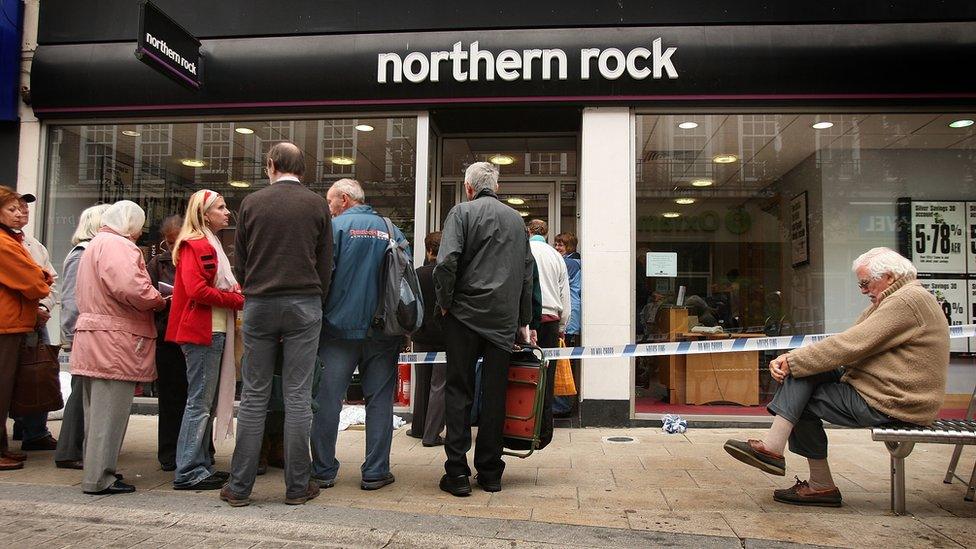
The crisis at Northern Rock saw concerned account holders queue to remove their funds
In the unlikely event that the wholesale markets dried up, Northern Rock could face difficulties. The study attracted little attention, but turned out to be remarkably prescient.
In June of 2007 came a much clearer warning sign. Bear Stearns, a venerable Wall Street bank, had to stop customers withdrawing money from two of its investment funds. The funds had specialised in the financial products that had been created on the back of those sub-prime mortgages.
These products were, in theory, designed to spread risk; individual loans were packaged up into new types of securities called collateralised debt obligations, or CDOs.
These packages contained a mix of loans; the plan was that because it was highly unlikely that all the loans would fail, they were safer.
But Wall Street built a financial pyramid on top of them, creating new derivative trades that piled risk and leverage on top of the basic lending. When a few of the loans started to go wrong, the panic spread.
Bear Stearns found, suddenly, that it could not find a buyer for any of its investment funds; at that moment, they were worthless.
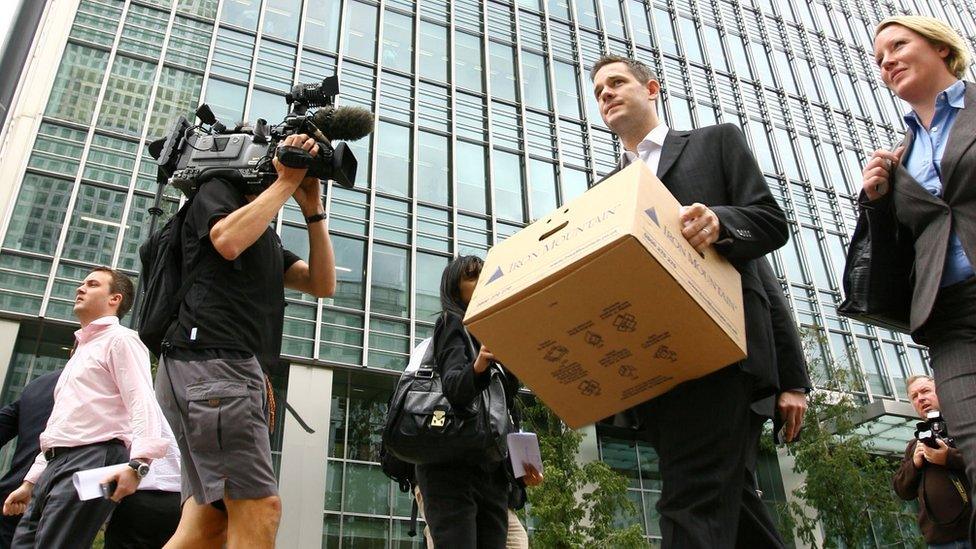
Staff at Lehman Brothers lost their jobs
The events at BNP Paribas fanned the flames, and by the end of the year the markets were in full retreat. As 2008 unfolded, those at the top of the big institutions feared the worst.
Sir Win Bischoff, the veteran British banker who was chairman of Citigroup through the crisis, and went on to be chairman of Lloyds Banking Group, told the BBC that at the start of the rout, he and others had "probably not" known how bad things were. "There was, I think, an element of wishful thinking."
Sir Win soon became convinced of how serious things were when Hank Paulson, then US Treasury Secretary, began discussions in earnest about a programme of American government support for the big banks.
"That was a moment at which I thought it could be really bad. We took some comfort though that Merrill Lynch [another big Wall Street bank] had been saved by a merger - although it was a reluctant merger - with Bank of America."
The crisis peaked with the demise of Lehman Brothers, another Wall Street bank that, like Bear Stearns, had piled aggressively into investment banking and trading. Its boss, Dick Fuld, remained defiant until the end, but had had a premonition of his own downfall.
Andrew Gowers, the former Financial Times editor who was working as an in-house PR man at Lehman Brothers when it went under, told the BBC he had attended a meeting at Davos, the annual meeting of business leaders in a Swiss ski resort, in January 2007.
There, Mr Fuld had told a surprised audience of journalists that "this was the year that markets could crack". "They were aghast," Mr Gowers said.
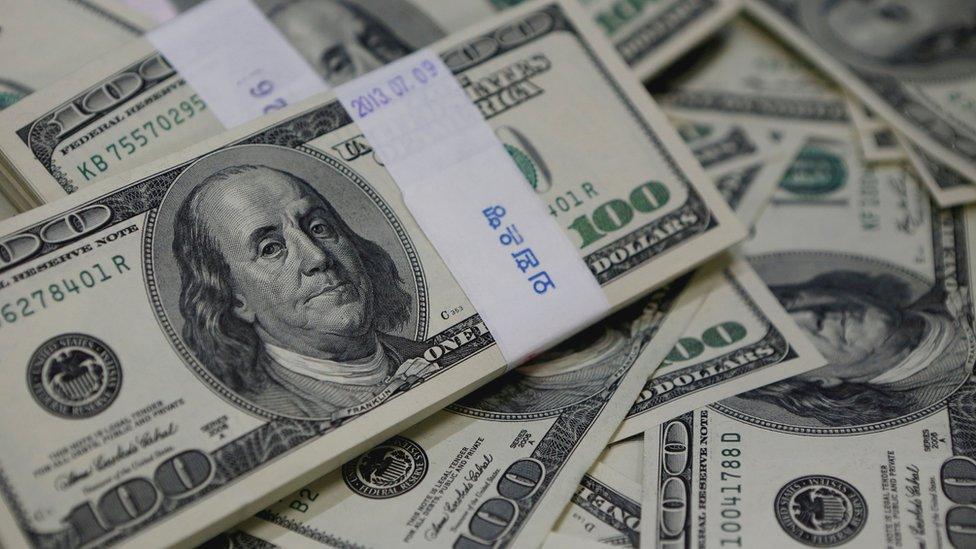
Some analysts say that high levels of debt remain a concern
The ripples of Lehman's demise in September 2008 spread rapidly to the UK. Lord Darling suffered some heart-stopping moments, particularly when Royal Bank of Scotland, which was at that stage the world's biggest bank, came close to running out of cash.
"I was at a meeting of European finance ministers when I took a call from the chairman of RBS. He said the bank was in danger of running out of money. I said, 'ok, we have plans in place, how long have you got?'. And he said, 'a few hours'. That was chilling."
Lord Darling said there was little alternative to the giant, government-funded rescue plan for RBS and Lloyds/HBOS. "If the plan hadn't worked, I don't know where we would have been. Where would we have gone? The International Monetary Fund (the lender backed by the G7 group of the world's largest economies) isn't big enough."
A decade on, banks are better capitalised, and, most think, better regulated. Lord Darling says, however, that vigilance is necessary. "It's just when you think things are fine that complacency creeps in," he said.
Gillian Tett, the US managing editor of the Financial Times, and a close observer of the banking crisis, says that while individual banks might be on a sounder footing, the wider problem is debt.
"What has happened is a reliance on private debt - heroin, if you like - has been replaced by a reliance on public debt - morphine. The system as a whole is still unbalanced."
Sir Win Bischoff, who after decades at the top of the banking system has seen more crises than most, believes the system is safer than before. "But ask me again in 10 years' time."
- Published9 August 2017
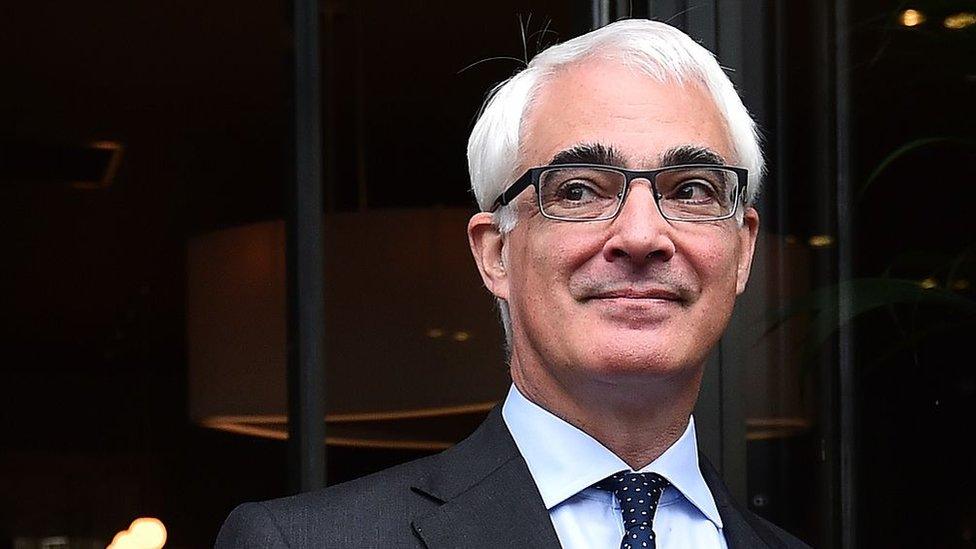
- Published9 August 2017
- Published9 August 2017
